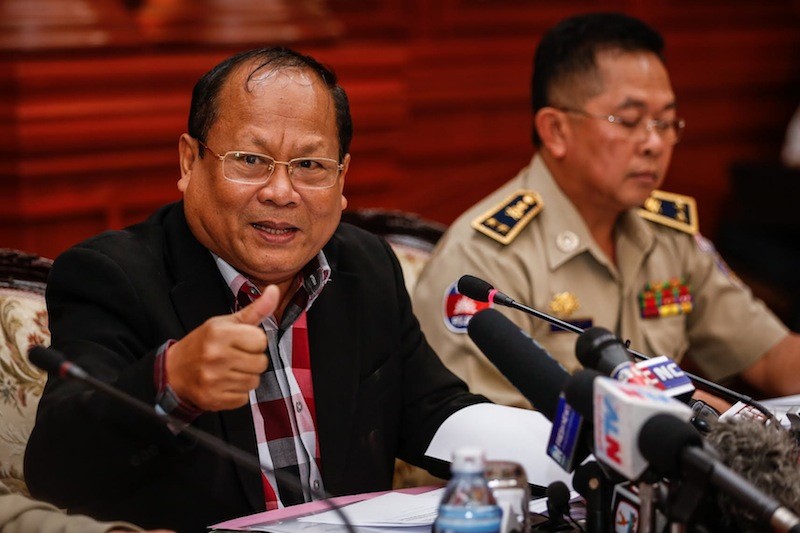The Interior Ministry on Friday announced the preliminary results of a two-month investigation into whether the CNRP had faked thumbprints on a petition submitted to the king, saying it had uncovered evidence that the opposition party forged some of the prints and obtained others under false pretenses.
Although the committee, which comprises officials from the National Police as well as police or government officials from every province, stopped short of announcing penalties for the opposition party, it seemingly paved the way for criminal charges to be laid by saying that unspecified “action” would be taken in the matter.

In June, Prime Minister Hun Sen asked the ministry to assess whether the opposition party had forged some of the prints on a May petition calling for King Norodom Sihamoni’s intervention to end repression against government critics. The premier said it was hard to believe that the CNRP had actually collected the tens of thousands of thumbprints on the 10,036-page petition.
Speaking on behalf of the committee, Interior Ministry spokesman Khieu Sopheak listed a total of 80,502 inaccuracies the investigators had found after scrutinizing 2,600 pages of the petition over the past two months.
“The CNRP said they had collected thumbprints from 25 provinces, but it’s only 21 provinces,” he said during a press conference at the Ministry of Interior on Friday.
“There are irregularities with 80,502 people, and 1,623 people were not present when the petitions came around, and some did not live in the areas but had names in the petitions,” he continued.
Among the irregularities General Sopheak listed were 43 thumbprints that had been replicated on the petition at least 100 times each, and a total of 738 thumbprints that had been used multiple times. He said 127 people had complained that CNRP activists misled or coerced them and had disavowed their signatures on the petition.
“After this conference, we hope that those who made this will wake up,” Gen. Sopheak said. “Also, action must be taken. If not, why did we create this committee?”
He declined to specify what he meant by “action,” saying only that the group’s report would be submitted to the government.
“We will report to the government. Then we will know what we will do next, after this report,” he said.
CNRP lawmaker Eng Chhay Eang said that because the committee’s members were all working for the government, their conclusion was not surprising.
“They should invite us or nongovernmental organizations for the sake of transparency,” he said.
He added that he was concerned the intense scrutiny of the prints would have a chilling effect on citizens who might be afraid to sign petitions in the future.
“In a democracy, when people submit a petition, the [government’s] job is to look at the meaning; it’s not to examine thumbprints,” he said.
“This is a threat to people to stop thumbprint petitions or stop supporting the CNRP.”




